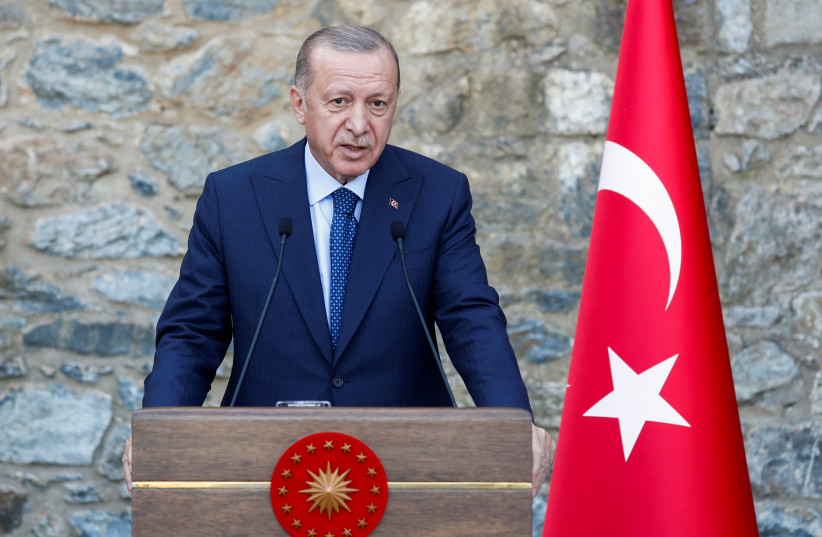Turkish Foreign Minister Mevlüt Çavusoglu called Foreign Minister Yair Lapid on Thursday, marking the first such call between the countries’ top diplomats in 13 years.
The official statement from Jerusalem was that Çavusoglu called to wish Lapid well after he tested positive for COVID-19. The Foreign Ministry in Ankara did not release a readout.
Lapid, however, had already recovered from COVID-19 and left isolation.
The call came days after Turkish President Recep Tayyip Erdogan continued in his friendlier messages toward Israel.
Erdogan mentioned in a press conference on Tuesday that he may meet with President Isaac Herzog, and said that Prime Minister Naftali Bennett is “sending messages at different levels.”

The Turkish leader also said he would be willing to work with Israel on a natural gas pipeline to Europe via Turkey, after the US told Greece, Israel and Cyprus that it does not support their joint plan to construct the EastMed pipeline toward that end.
A source in Jerusalem confirmed that talks are ongoing between the offices of the two presidents for Herzog to visit.
The source emphasized that improvements in Jerusalem-Ankara relations will not come at the expense of Israel’s alliance with Greece and Cyprus, which are Turkey’s historic adversaries.
Also this week, the Turkish Foreign Ministry criticized Israel for evicting Palestinians who had illegally built their homes and businesses on public land, and Turkey’s Ministry of Religious Affairs organized a “symposium meant to raise awareness about conflict in Jerusalem and al-Aksa Mosque.”
Erdogan spoke on the phone with the Israeli president three times since the latter entered office last year: first to congratulate him on his new post; after an Israeli couple was released from Turkish prison; and last week, after Herzog’s mother died, which came in addition to a condolence letter.
Last month, Erdogan said that Jerusalem and Ankara can exchange ambassadors again if Israel changes course in areas Turkey views as red flags, specifically Jerusalem and al-Aqsa Mosque.
In recent years, Turkey has harbored Hamas terrorists and backed destabilizing activities in east Jerusalem, and Erdogan accused Israel of intentionally killing Palestinian children.
He made overtures toward Israel throughout 2021, a reversal that may be related to Turkey’s declining economy and poor relations with the US.
The nadir in Israel-Turkey ties was in 2010, when the Erdogan-linked IHH (Humanitarian Relief Foundation) sent the Mavi Marmara ship to bust the IDF’s naval blockade on Gaza, arming some of the people aboard. IDF naval commandos stopped the ship, were attacked by IHH members aboard and killed nine of them.
Jerusalem and Ankara maintained diplomatic relations in the aftermath, even reinstalling ambassadors in 2016. But two years later, Turkey expelled Israel’s ambassador over the IDF response to rioting on the Gaza border.
